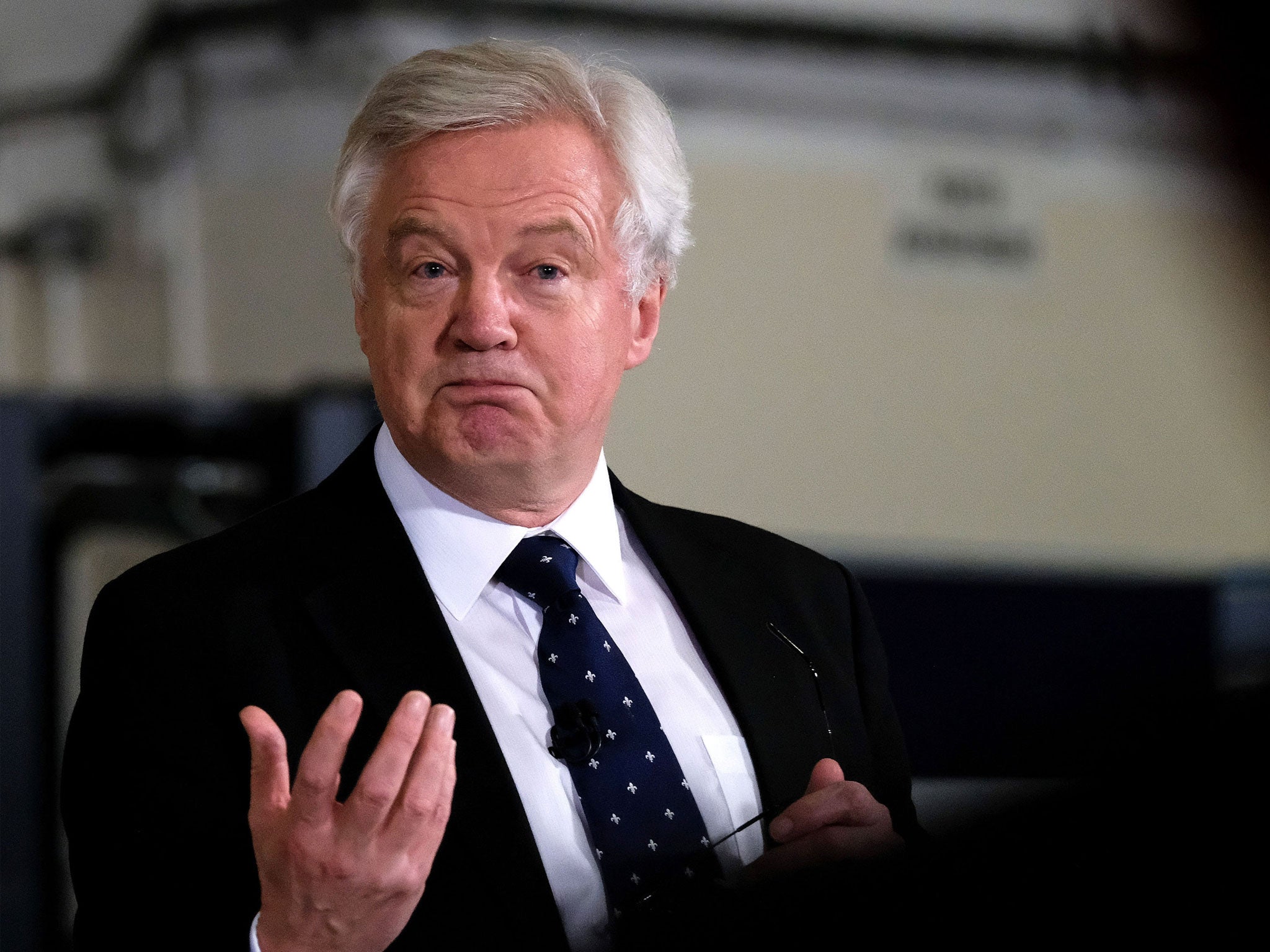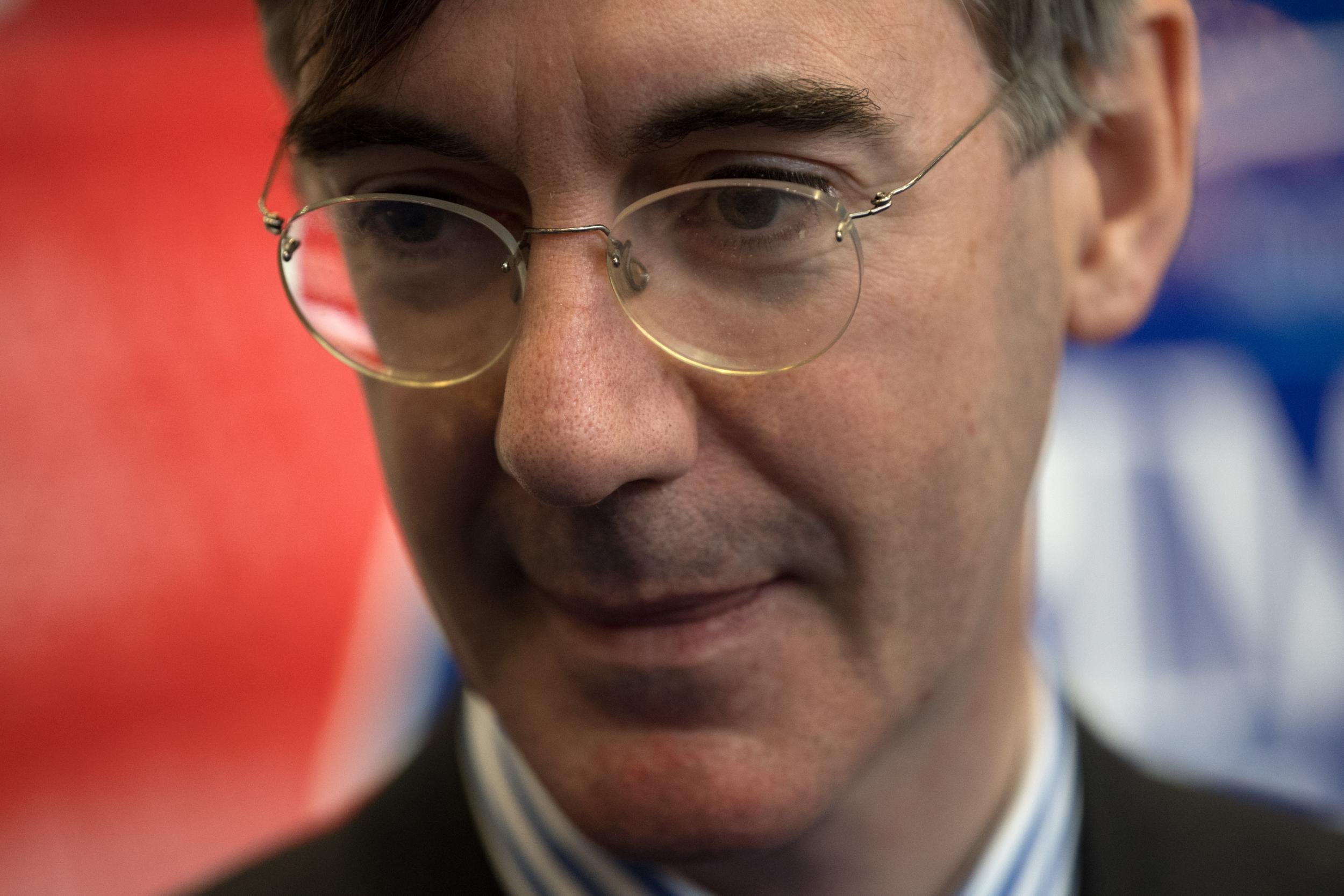Brexit: UK considers asking Brussels for a longer transition period
Exclusive: EU says it wants the implementation timeframe to end on 31 December 2020

Your support helps us to tell the story
From reproductive rights to climate change to Big Tech, The Independent is on the ground when the story is developing. Whether it's investigating the financials of Elon Musk's pro-Trump PAC or producing our latest documentary, 'The A Word', which shines a light on the American women fighting for reproductive rights, we know how important it is to parse out the facts from the messaging.
At such a critical moment in US history, we need reporters on the ground. Your donation allows us to keep sending journalists to speak to both sides of the story.
The Independent is trusted by Americans across the entire political spectrum. And unlike many other quality news outlets, we choose not to lock Americans out of our reporting and analysis with paywalls. We believe quality journalism should be available to everyone, paid for by those who can afford it.
Your support makes all the difference.The UK’s Brexit negotiators are considering asking the EU for a longer transition period than the one they have been offered, amid concerns it will not be long enough to prepare the country for exit.
The possibility of a longer transition comes amid increasing discontent from the Tory right about the period as an EU “vassal state”, and with negotiations on the issue set to start in earnest in the coming weeks.
A Brussels source told The Independent that British officials had asked about the feasibility of extending the period in a recent meeting, while UK diplomats admitted that it might need to stretch beyond the start of 2021 and would not rule out pushing for a later date in upcoming talks.
Some experts and EU countries have called for the transition to be as long as five years. Ireland’s then foreign minister Simon Coveney said in November that a two-year transition period was “unrealistic” and that the duration should not be set “to meet some kind of political electoral cycle”. Labour Shadow Chancellor John McDonnell has also suggested “three or four years”.
Michel Barnier, the European Commission’s chief negotiator, has said that the transition period should run until 31 December 2020 – one year and nine months after Brexit. Theresa May said in her Florence speech that she wants a transition period of “around two years”.
But although Mr Barnier’s suggested date appears to broadly fit with the lower end of the PM’s suggestion, UK officials are worried that the UK economy might require a transition that stretched towards the upper end of “around two years”, into 2021.
A government spokesperson also left the door open to an even longer transition period, suggesting that a length of around two years is merely a “current assessment” of the requirements of the UK economy.
The possibility of an extended transition comes amid growing disquiet about the implementation period on the right wing of the Conservative party. Jacob Rees-Mogg, who has become the public face of Eurosceptic discontent with the direction of Theresa May’s Brexit, has repeatedly claimed that he thinks Britain will become a “vassal state” of the EU for its duration.
There have also been unconfirmed reports in the press that Ms May could soon face a vote of no confidence from her own MPs, as the number of letters from discontented parliamentarians lodged with the 1922 Committee chair nears 15 per cent of the parliamentary party stipulated under Tory rules.
Some Tories are irritated at the prospect of the transition because Brussels is insisting, according to leaked draft documents on its negotiating position, that the UK will have to follow and implement all new EU rules drawn up during the period, but have no say in shaping them nor even have an automatic right to be in the room while they are being decided. European Commission negotiators are also being instructed to demand a veto over any trade deals with other countries that Britain wants to sign, for the duration of the period.

Mr Davis has, however, suggested he is broadly comfortable with the nature of such a transition as a “short-term” measure. In a speech in the north-east of England on Friday he effectively confirmed that the UK was signed up to the broad terms of the transition deal as spelled out by the EU, as reported by The Independent last week. He said the transition deal was a “bridge to the future”.
Asked whether the UK could push for a date later than the one proposed by Michel Barnier, a spokesperson for the Department for Exiting the European Union said: “The UK is looking to agree, by March, a time-limited implementation period on current terms, meaning there will be just one set of changes for businesses to manage.
“The duration should be determined simply by how long it will take to prepare and implement the new processes and new systems that will underpin our future partnership with the EU. Our current assessment points to a period of around two years.”
Anti-hard Brexit campaigners seized on the possibility of a longer transition. Alex Sobel, a Labour MP who supports the Best for Britain campaign, told The Independent: “The Government is clearly unable to progress a negotiation which makes a clear case for a longer transition to stop the UK going over a cliff edge.”
Fabian Hamilton, another MP said: “A transitional period after leaving the European Union is vital to maintaining economic stability.
“However, during the transitional period, the Government must put jobs first and aim to secure a Brexit deal that prioritises the working people of this country. Otherwise, we’re at risk of a largely pointless Tory transitional period that puts the economy at risk.”
Join our commenting forum
Join thought-provoking conversations, follow other Independent readers and see their replies
Comments